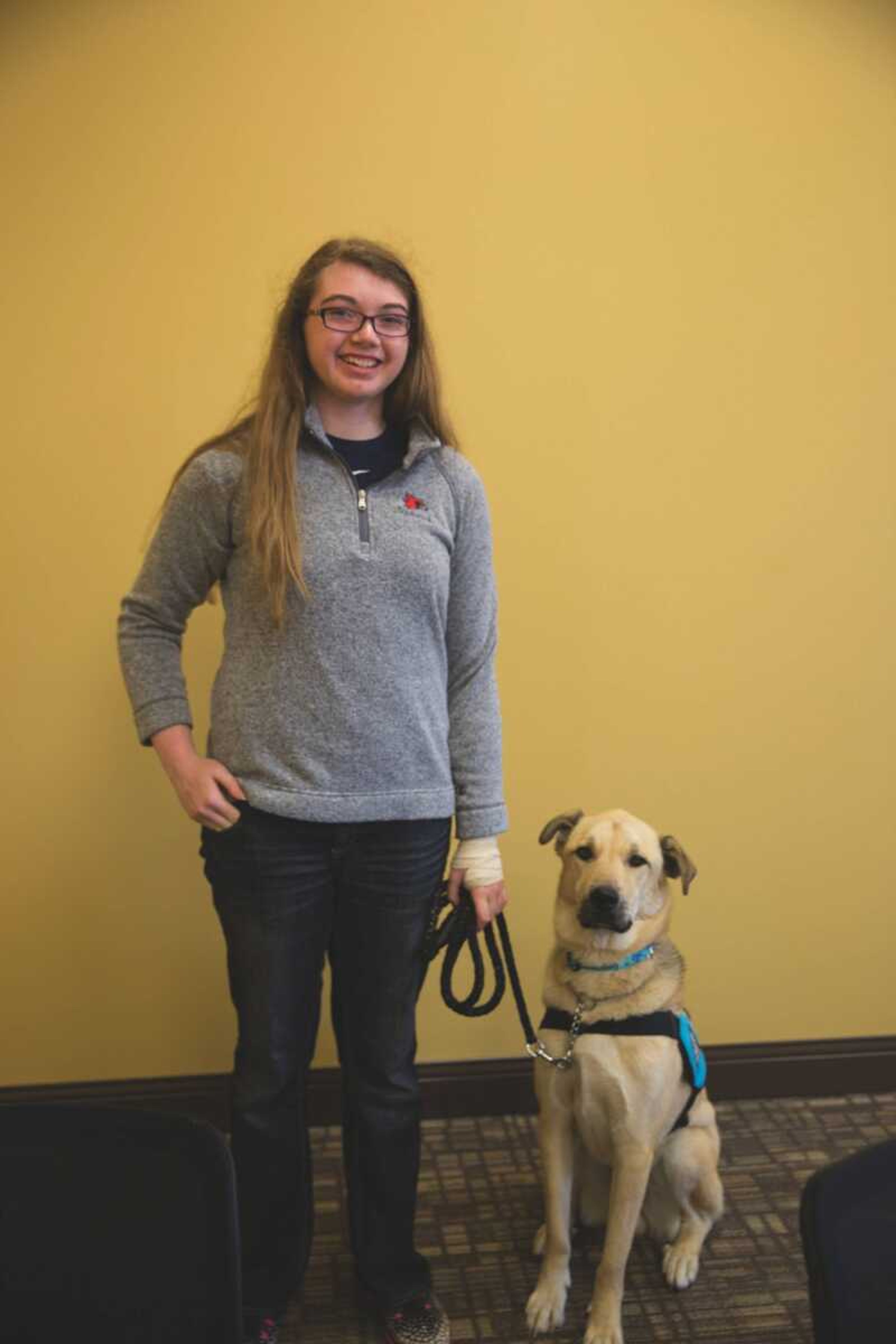Twins take on college with service dogs
Living life as a college student has its ups and downs and stress often finds its way to the forefront. Marissa and Alexia New are twin sophomores living on campus at Southeast Missouri State University with service dogs that help in managing those stressful situations...
Living life as a college student has its ups and downs and stress often finds its way to the forefront.
Marissa and Alexia New are twin sophomores living on campus at Southeast Missouri State University with service dogs that help in managing those stressful situations.
They are both majoring in biomedical science. Marissa aspires to be a neuropsychologist, because she would like to help people who have a similar disorder as herself. Alexia is interested in becoming a doctor, whose specialty would be in pediatric hematology/oncology (blood diseases/cancer). Their love for science came from their own diagnoses.
Alexia was diagnosed with postural orthostatic tachycardia syndrome (POTS) as a child, meaning when she stands, an excessively reduced volume of blood returns to the heart. Marissa's diagnosis came much later. Marissa has sensory processing disorder, which includesanxiety attacks.
Marissa and Alexia both decided they would not let these disorders take them to a place of sitting on the couch and doing nothing. They both wanted a chance to save the world, or at least attempt to.
Alexia decided to start researching service animals after she adopted her dog Izzy from a pound. From her research as well as their connection, she knew she would make a great handler and Izzy would make a great service dog.
Marissa was a little less enthusiastic about having a service dog. She said she was frightened of dogs and did not think she could be around a dog in that nature. Seeing the interaction and life-saving acts of Izzy with her sister brought Marissa around to wanting a service dog, though. It took two years for Marissa to receive her dog, Creed, a graduate of the Puppies For Parole program, which is run by the Missouri Department of Corrections and takes rescued dogs and allows inmates to train them to be obedient. They properly socialize the dogs so they can be adoptable through their animal shelter.
When Marissa saw Creed for the first time, she fell in love. She said it was an instant attraction, and she really doesn't know how she lived without Creed all this time.
"His heroic acts of laying on my legs, or he can lay on my chest, he learned that whenever I said 'help,'" Marissa said. "He would put pressure, and now he has become in sync with my body and began to alert me before I need help, this being how Creed makes it possible for me to go to college."
With Alexia being active in the honor society Phi Eta Sigma and service fraternity Gamma Sigma Sigma, Izzy helps so she can be as social as she wants to be.
The sisters like to say Izzy is "small, but mighty with intelligence." Izzy is bilingual, and understands commands in German and English.
If it was not for their service dogs, Marissa and Alexia would not have the independence and freedom they do now. They get to worry less about how they are feeling and more about what is going on in the present, like the heavy load of the Medical College Admission Test, class assignments, Marissa doing research in the lab or Alexia working in the library. They are more at ease, because they know Creed and Izzy are there for them, and Creed and Izzy enjoy doing their jobs.
Marissa and Alexia's dogs do practical things regular people take for granted. For instance, because of Alexia's condition, there are times where she cannot stand long, but Izzy will alert her of tiredness and assist her in doing the laundry or getting her phone.
Izzy is able to do the laundry by taking clothes out of the washer or dryer and handing them to Alexia. Izzy can also open drawers to put small clothes away.
"Izzy lies on Alexia's chest, which is called deep pressure therapy, which Creed does as well, but can also do it on my legs and when I am standing," Marissa said.
For students who wonder what to do when they encounter Izzy or Creed, they should remember the dogs are at work. When the dogs are distracted or interrupted, they take the chance of endangering their handler. The handler's disability also is not public domain, so one should refrain from asking the handlers why they have a service dog.






